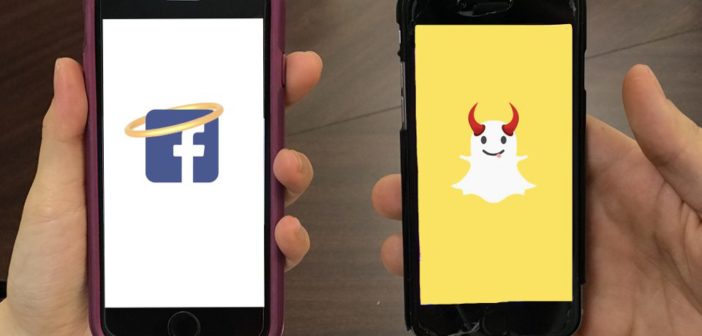according to BBC News’ “Is social media bad for you? The evidence and the unknowns.”
With social media taking up nearly 10 percent of our everyday lives, is it doing more harm than good?
At some level, social media is virtually unavoidable. Studies have shown that it is bound to have some negative effects no matter the use or intention.
“I worry that we spend more time interacting with digital screens than real people. When that happens, we lose empathy and compassion for each other,” said Karl Kelley, professor of psychology and neuroscience.
Social media itself may not be the underlying issue, but the way that people use and perceive it may be the cause of social media negativity.
A November 2016 article posted on Psychology Today by Azadeh Aalai said that “one of the most common responses we have as Facebook users is to socially compare ourselves with others. Social comparison can be positive or negative for our emotional well-being…”
Often, social media is used as a judgment tool. People tend to judge others based on their social media profiles without ever having met them face-to-face. In doing so, people compare their own reality with others, often promoting negative perceptions.
Given the global reach of social media, it is also easier to spread misinformation or fake news. Fake news is more common and increasingly harder to unmask due to a lack of media literacy in the public. As a result, misinformation may be widely believed or reiterated again and again through the media.
Often, “we subject ourselves to only information that we feel comfortable with,” said assistant professor of communication, Michael Blight. By doing so, people often create a barrier between what is perceived to be truth and what actually is truth. People follow what they see in the media often because they are comfortable with the information and it solidifies their own beliefs.
The set agendas of the mass media “along with our subjective reality, shape the world and the way that we perceive it,” said Blight. He explains that people often align their own subjective realities with the set agendas of the mass media which creates their own perceived idea of how the world works.
“So, when we talk about individuals going out of their way to find information that solidifies their pre-existing beliefs, it’s very much in line with selective perception,” said Blight. People tend to seek out information and news sources that align with and fuel their own beliefs. For example, most people who voted for Hillary Clinton, are “often not tuning into ‘Fox and Friends’ every morning to get their news.”
“We purposefully choose which accounts we want to follow. My algorithm that is generated every time that I log onto one of these sites is going to be posts from the people I follow, the things that they like or retweet, which further perpetuates whatever belief system that person or page has forwarded onto me,” said Blight. People choose who they follow and what type of information they see based on the belief systems of those people.
“Social media is not the problem; this issue is how much we use it and what we believe,” said Kelley. “I worry that too many people spend too much time on social media and start to believe everything that they read. This is when it becomes a problem.”

